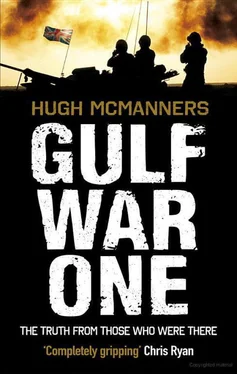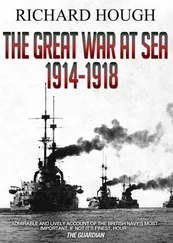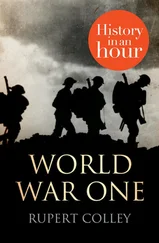The Rt Hon Tom King
UK Secretary of State for Defence
What was quickly apparent as we started to deploy forces to the Gulf, was that the UK defence budget would need substantial extra funds. We entered very early discussions with Gulf states who felt threatened: Bahrain, the UAE and Oman, as well as Saudi. I visited all of these countries, and they talked with us about making contributions to our costs. We had to move very fast, and so depended on local supplies, particularly water, our people paying directly to use local facilities. We’d either be reimbursed by each government, or conversely we were never charged. Subsequently, at the end of it all, they virtually all honoured the understandings we’d had, and we received very substantial sums from them.
We chartered ships, and obtained permission from the Egyptians to use the Suez Canal. There was some embarrassment at their having been thought to be slightly party to Saddam’s great plan, but their relationship with the USA prevented any actual problems.
Lieutenant General Walter Boomer
General Officer Commanding, 1 Marine Expeditionary Force, United States Marine Corps
We were able to launch the 7th Marine Brigade, our rapid reaction brigade, in very short order out of Twentynine Palms, California on 12 August. The Saudis had never had foreign troops on their soil, so our 7th Brigade’s Major General Hopkins had his hands full developing relationships. At first they didn’t want him to deploy, concerned that their people be kept calm. The sight of foreigners, especially with weapons, was disconcerting to them. Nonetheless, he got his troops deployed into defensive positions [by 20 August], protecting the border.
At the same time, we’d deployed our maritime pre-positioning ships, loaded with all the gear and supplies we needed for combat. The early decision to launch some of these ships from our base at Diego Garcia [in the Indian Ocean] was a good one. So supplies arrived at the same time as the First Expeditionary Force, and we were fully prepared from the word ‘Go’. However, we were facing an armoured army, with only anti-tank missiles and no tanks, which was very daunting.
Brigadier MikeWillcocks
Chief of Staff (Land), Joint War Headquarters, RAF High Wycombe
At the very start, the crisis was seen as a purely air force operation, based on the strategic doctrine that air power can win wars – which is nonsense. The MoD’s approach was to do nothing until there was a crisis, and only then select a headquarters to run it. Air Chief Marshal Sir Paddy Hine commanded RAF Strike Command, and his HQ had a huge modern bunker four storeys deep, housing eight hundred and fifty people, and was already operating two shifts as a NATO HQ. He was made joint commander, and Air Vice Marshal Sandy Wilson was sent out to Riyadh with the Air Headquarters South Arabian Peninsula, to be Commander British Forces Middle East.
Amazingly, it took ten weeks for the MoD to decide there might also be a land operation, and bring in expert ‘away teams’ from the Army’s Land Headquarters and the Royal Navy, to start proper joint warfare planning.
Then in October, General Peter de la Billiere was sent out to set up a joint British Forces Middle East HQ in Saudi, and take over from Air Vice Marshal Wilson. Strangely, the air vice marshal remained in theatre for several weeks after this.
Major General Alexander Harley
Assistant Chief of Defence Staff (Overseas) and Deputy Director of Joint Operations, Ministry of Defence, Whitehall
The MoD wouldn’t spend money on its own strategic communications, so for each crisis, it was left to the three Services to cobble together something at the last minute, involving very expensive off-the-shelf systems which were inefficient, complex and temporary.
There were huge delays in sending messages – with the emergency ‘Flash’ system being used for just about everything. It was also very hard for anyone to talk about classified matters securely over the telephone, as the MoD hadn’t bought the equipment. The only way we could talk to our opposite numbers in the Pentagon or anywhere else in the USA was by making an appointment with one of the two US liaison officers in the MoD, who’d dial each call with all the security codes for us each time. Usually the person we wanted to speak to was out somewhere, so there’d be a huge logjam of calls to make.
Doing operations with the Americans meant coping with the huge data stream their systems produce, which swamped our systems.
The navy were quick off the mark and moved into RAF Strike Command to organise the securing of Gulf waters. But when we decided to send 7th Armoured Brigade to fight a land battle, we couldn’t then shift command to the Army Headquarters Land at Wilton, which didn’t in any case have a bunker. So during the initial phases, the army component sent to Strike Command – the ‘away team’ – was quite small, with a growing army staff at Wilton.
I dealt with Air Vice Marshal Dick Johns in RAF Strike Command. He and I would be on the phone for most of the day, especially early on; and my boss Ken Hayr was talking with Paddy Hine and the official at his level at the Cabinet Office. It was very close-knit, and had already been rehearsed in Cold War exercises.
Hashim Ali
Iraq freedom fighter
Being in Syria for 1990, we had no contact with anybody inside Iraq as there was severe tension between Syria and Iraq, with Syrian soldiers eventually among the coalition forces. It was a very hard time for us, to see our own people being killed by Iraqi national troops and then by foreign troops; a double tragedy for our people.
People are still people, even when they put military clothes on. They are still our relatives, our sons – our poor uneducated people who couldn’t have the opportunity to go to school or to the university, but had to go to the military.
Major General Alexander Harley
Assistant Chief of Defence Staff (Overseas) and Deputy Director of Joint Operations, Ministry of Defence, Whitehall
We put in two air forces from the very beginning: one in Saudi Arabia covering the south of Iraq, and the other at Incirlik in Turkey, covering the northern targets, to remove any threat from Iraqi aircraft and helicopters, and then to achieve complete air supremacy over the whole place.
The key issue with deploying air power is targeting, which is very sensitive – and classified Top Secret. The British government will not sign up to join a coalition without approving all of the targets to be bombed – including those being attacked by other air forces in the alliance. We’re much better at it now, but in those days, the MoD didn’t have proper targeting staff with the right skills, or proper management procedures.
The Rt Hon Tom King
UK Secretary of State for Defence
When I first flew out to Riyadh quite soon after the invitation had been approved, executive jets were lined up beside the terminal building totally ready to fly, engines spinning, indicating the nervousness [of the Saudis] at the time, and the risk of fresh attacks. I met King Fahd, Crown Prince Abdullah, Prince Sultan, the defence minister, and his son Prince Khaled, who was to become Joint Coalition Commander with Norman Schwarzkopf. I first saw them all together with the King, then separately to discuss the various aspects.
Although they wanted us to bring sufficient military forces, so many Christian troops would be testing for a country with Islam as part of its constitution, especially at Christmas. There were also many housekeeping, cost and expense issues. But the Saudis had no doubt that unless there was an adequate response from what became a UN coalition, Saddam would invade Saudi.
Читать дальше












